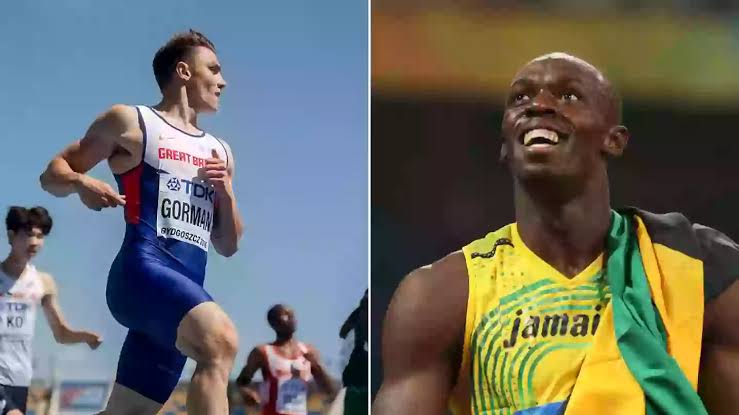
Usain Bolt might be the undisputed fastest person in human history but British sprinter Ryan Gorman does have one claim to have been even faster.
Bolt isn’t as fast as a cheetah. When he was 14, he also wasn’t as fast as Gorman at the same age.
In 2013, 14-year-old Gorman ran a time of 21.76 seconds in the 200 metres event at the England Under-17 Indoor Championships.
That’s five hundredths faster than the Jamaican sprint icon’s personal best at 14, not that Gorman or the people around him knew at the time.
Speaking exclusively to SPORTbible, Gorman explained: “A lot of people, a lot of coaches, they said, ‘That’s quick’. I didn’t realise, I was oblivious as to how quick it was.
“It must have been about two or three days afterwards, as a lot of people did take quite a lot of interest when I ran it. Someone got in touch to say, ‘We’ve done a bit of research and it’s actually faster than Usain Bolt.'”
Buoyed and confident, Gorman kept getting faster as he progressed through the junior ranks and into senior athletics.
“In 2016, I was running consistently under 21 seconds,” said the Englishman. “I knew I had qualification for the world juniors, which went brilliant. But unfortunately I came down with quite a bad sickness between the heats and the semi-final, so I didn’t run particularly great in the semi-final.
“I was quite level-headed in my training. I ate well, my training was consistent, so I trusted in that whole process to get me to where I’d like to be.”
Gorman’s development was first paused and then halted by back-to-back hamstring injuries. He admitted it was a crushing blow.
“I just couldn’t get past my injury, mentally. Physically, I was absolutely fine. I could run a race. But I could feel my hamstring was going to go. And I still can’t get past that fear of tearing it again,” he recalled.
Ryan Gorman (left) leaves the starting blocks in a 60m race at the 2020 Spar British Athletics Indoor Championships
Ryan Gorman (left) leaves the starting blocks in a 60m race at the 2020 Spar British Athletics Indoor Championships
In 2022, after plugging away in hopes of a full recovery, Gorman reluctantly called it a day.
“Now, I don’t really compete in any sport, or train for a sport as such. That fear just kind of takes over a bit. For me now, it’s just about focusing on gym, going strong over that and hopefully mentally preparing myself for If I do want to go into a sport,” he told SPORTbible.
At 25, Gorman is using his experience to help other athletes to deal with the physical and mental impact of injuries and rehabilitation.
“I’ve got 10 years of experience, cardio, skeletal. And I’ve got a degree in sports therapy, so I combine all of that together,” he added.
“I’ve also got the mental experience as well. I’ve got my own personal experiences. I can relate to people – I can say, ‘I’ve had that injury, I know what to do, I know how it works for me, or how to speak to somebody about an injury.’
“To me, the injury physically is easy to repair. But mentally, it’s really difficult. And I, for one, know how difficult it can be, I know that’s my downfall and it’s difficult for me to get past it. But I know how others might feel about it.”
Be the first to comment